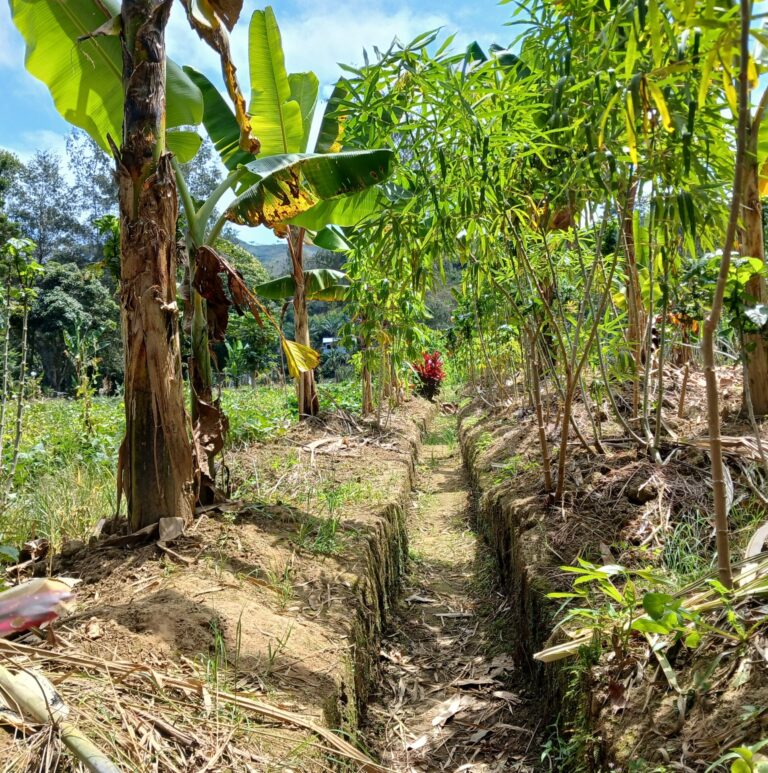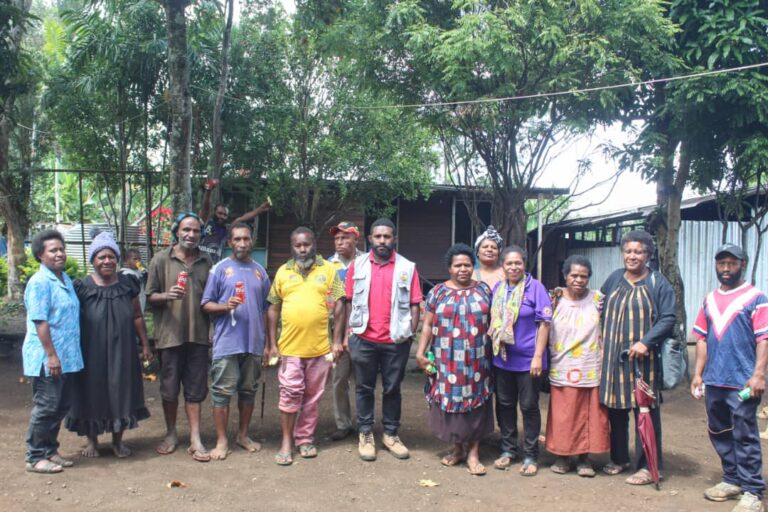Locally-led Adaptation in Climate-Vulnerable Communities in Papua New Guinea
Together, both communities in the case study consist of just over 1,000 people. The first community is semi-urban, and most inhabitants rely on subsistence farming. The community is near a large river, which floods during the wet season. In contrast, the second community is located within rural grasslands and experiences arid, drought-like conditions during the dry season.
The communities invited the Research and Conservation Foundation of Papua New Guinea to help improve understandings and responses to the climate challenges facing their respective regions. The researchers used the opportunity to ask community leaders, farmers, women, and youth about ways to improve the Foundation’s previous climate communication strategies to better inform policy and practice.
This case study shows that sometimes, local adaptation needs to be hyper-local, and that in some cases, traditional knowledge is having to adapt to new climate realities.

As part of the case study, the researchers held climate awareness and skills training sessions, face-to-face discussions, and printed information about climate change issues to the communities. The semi-urban, flood-prone community engaged with soil management and conservation topics, while the drought-prone community engaged with water shortages and climate change topics.
The researchers discovered that the same solution was not always applicable to the same problem. Rather, solutions needed to be adjusted to consider geographic location, vegetation types, climate, and socio-economic conditions. Some community members indicated posters were not advisable due to illiteracy in their community, and a preference was discovered for using local dialects when communicating about climate change rather than the common language of Melanesian Pidgin. The research also highlights the importance of vigilantly listening to the community when developing climate communication and training strategies. For instance, the drought-prone community needed a filter for their natural well and pond, so the skills demonstration session focused on constructing a biosand water filter.
The community members who participated in the case study shared that they were having to adapt their traditional knowledge to new climate realities.
The case study found that community members were learning about climate change and its effects not by watching the news, but by observing the changes occurring in their local environment. The community members noticed the timing for when to plant crops no longer aligned with their prior knowledge of the land. One community member mentioned he used to use the position of the rising and setting sun to know when to plant crops. Using this timing now, however, results in poor crop yields. It was also discovered that concern about climate change was often related to whether the community member was able to obtain food from their friends and family in times of need. Community members without access to this ‘traditional insurance policy’ indicated higher levels of climate concern.
This exploration uncovered two communities determined to overcome climate challenges related to water availability and soil erosion due to flooding. Ultimately, the Research and Conservation Foundation of Papua New Guinea found the communities were receptive to learning new skills to adapt to climate change. In fact, the community members indicated they would have appreciated follow-up training and wanted more videos to be incorporated in the training. The case study shows that illiteracy can be a significant barrier for implementing climate solutions. While these two tribal communities face different climate impacts and solutions, they share the need for solutions to be based in their community’s context and cultural relevance.

The MECCE Project is grateful to Research & Conservation Foundation PNG for conducting this case study


INTERACTIVE DATA PLATFORM
Our interactive data platform provides users with the ability to analyze and visualize the MECCE Project’s case studies, country profile, and global indicator data.
Learn More about the MECCE Project

DIGITAL LIBRARY
Visit our open access repository for project materials, including policy briefs, factsheets, guidelines, infographics, reports, and videos.

GLOBAL CCE BLOG
We discuss emerging issues in climate communication and education to respond to the area's rapidly evolving policy environment and public discourse.

REGIONAL HUBS
Learn how to join our growing global network, which supports regional input and action on climate communication and education.

